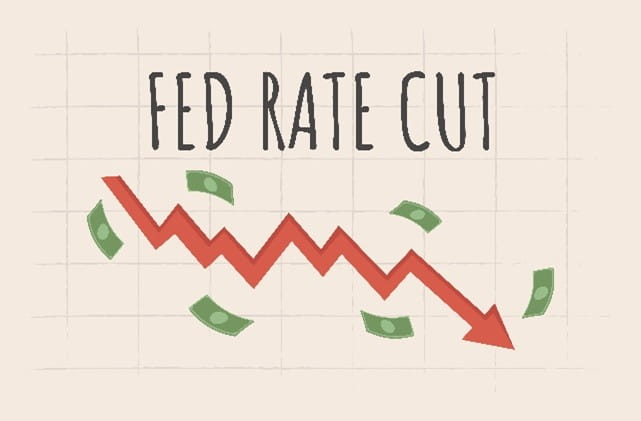I Was Much Happier When I Was Broke
Written By Paul Siluch
September 19th, 2025

My sister once dated a man who sold Canadian lottery tickets through the mail to Americans. Before 1996, most American lotteries—like those in California—paid winnings annually over 26 years, while Canadian lotteries paid out in one lump sum. People preferred one big cheque over twenty-six smaller ones.
He sold a lot of Canadian lottery tickets.
It was illegal, of course. My sister tended to see the best in people, even when she probably shouldn't have. But one thing he said stuck with me:
“Most people who win the lottery are broke within two years. It’s sometimes the worst thing that can happen to a person.”
California offered lump sum payouts in 1997 due to popular demand. Today, national lotteries like Powerball and Mega Millions offer both options. Research from The Journal of the Academy of Behavioral Finance found that over 93% of winners from 2003 to 2009 chose the lump sum.
David Lee Edwards won $27.3 million in 2001.
“He and his wife spent lavishly on mansions, cars, and drugs, exhausting the fortune in under five years. By 2013, Edwards died penniless and alone at age 58 from addiction-related issues.” — Yahoo! Finance
Bud Post won $16.2 million in the 1988 Pennsylvania Lottery. He spent $1 million within a year on luxuries and ventures proposed by family members. His ex-girlfriend sued him for a third of his winnings, and legal battles eventually left him broke. Before he died in 2006, he said:
“I wish it never happened… I was much happier when I was broke.” — Yahoo! Finance
It was the opposite of financial freedom for him.
Sudden Wealth Syndrome
Sudden Wealth Syndrome is both a catchy phrase and a documented phenomenon. Large, unexpected sums can overwhelm recipients, leading to financial ruin. Studies show many lottery winners go broke, and 70% of inherited wealth is lost by the second generation.
Sudden Wealth Syndrome (SWS) isn’t limited to lottery winners. A 2009 Sports Illustrated study estimated that 78% of NFL players file for bankruptcy within two years of retiring—despite earning millions.
One of the biggest examples is Mike Tyson. The boxer earned $400 million in his career, but poor investments and drug addiction left him $23 million in debt by 2003—and in jail.
Sudden Wealth Syndrome can also affect inheritances.

Barbara Hutton inherited the $50 million Woolworth fortune when she turned 21 in 1933 —worth over $900 million today. Known as “the poor little rich girl,” she married seven times and died nearly penniless in 1979 at age 66 (Yahoo! Finance).
What happens to people?
Money happens. Sudden wealth can lead to guilt, lavish spending, easy lending, and gambling. Greedy friends and resentful relatives appear because instant money brings out the worst in some people.
Humans have an innate desire to return to what they know. If they were happy with a modest income before, they subconsciously try to return to that financial level—often too successfully.
To My Loving Children, I Leave…
Many parents today find themselves worth far more than they ever expected, with far more than they can spend. They plan to leave large inheritances, and their children have planned to receive them.
Inheritors are prime candidates for Sudden Wealth Syndrome. How can you prevent this?
There’s no easy answer. Nothing in the world of money ever is.
Start by realizing this: if you give a millionaire a million dollars, they’re unlikely to blow it.
Why?
Because they’ve earned it before. They understand what it feels like to have money, and they know what to do with it.
Inheritance planning should begin early—with a savings mentality. Spend 10% today, save 90% for the future.
Encourage financial literacy:
- Help your children open Tax-Free Savings Accounts (or Roth IRAs in the U.S.)
- Help with initial deposits to retirement savings plans
- Match or incentivize savings (you save a dollar; I add a dollar)
- Teach the importance of emergency funds and debt repayment
You can also create a mindset of charity. It’s good for society and helps alleviate guilt from receiving too much, too soon.

Sometimes, it’s too late. Beneficiaries may have spouses
with different values or impulsive habits. And some children will never handle large sums responsibly.
Periodic Payments Make a Difference
U.S. lotteries originally paid winnings as annuities for a reason. Research from Annuity.org suggests that over 90% of lump sum winners squander their money, while annuity winners go bankrupt far less often.
Smaller, periodic payments make a difference.
Some lottery winners will always find ways to go into debt—borrowing against future payments or selling their annuity interest, for example. But enforced discipline improves the odds of keeping the money.
To protect adult children from themselves, their spouses, or unstable environments, trusts are increasingly used. Instead of lump sums, trusts distribute money gradually over a lifetime. They’re private, harder to break, and monitored by trustees.
The blessing of money can become a curse, for some people. These people have to be protected from themselves. That’s the reality of money.
And being a good parent doesn’t have to end with death.
Interest Rate Cuts
Markets have rallied since April on the prospect of interest rate cuts. Lower rates mean cheaper mortgages, business loans, and higher stock valuations. Who wouldn’t cheer when borrowing becomes less expensive?
This week’s cuts of 0.25% in Canada and the U.S. are welcome news for those people with mortgages. Approximately 60% of all Canadian mortgages come due between now and 2026. These were originated in 2020-2021 when rates were near 2%, meaning most borrowers are facing higher monthly costs.

With unemployment rising and core inflation falling, analysts expect the Bank of Canada to cut once more before year-end and the U.S. to cut twice more.
Rate cuts usually happen when the economy craters, or a crisis looms—like in 2007–2009 or during the pandemic. Not when the economy is steady, and stock markets are near all-time highs.
What happens to stocks at all-time highs when rates are cut? It is rare to see this happen. Central banks have their reasons to lower rates, often because inflation has retreated. This is called “normalizing” rates and is the reason cited for this week’s lowering of rates.
JPMorgan studied the period from 1980 to 2025 and found just 12 instances where stocks were near all-time highs and rates were cut. In all 12 cases, the market was higher one year later—by at least 15%.
The key questions for investors to ask are these:
- Are we heading into a recession?
- Or, is this just a pause in an ongoing expansion?
Both are possible.
In 50% of cases of rate cuts when stocks were at all-time highs since 1980, stocks fell in the 1–3 months following a rate. This was a “sell the news” reaction and spurred profit-taking.
But rebounds followed.
Don’t be shaken out if this happens.





